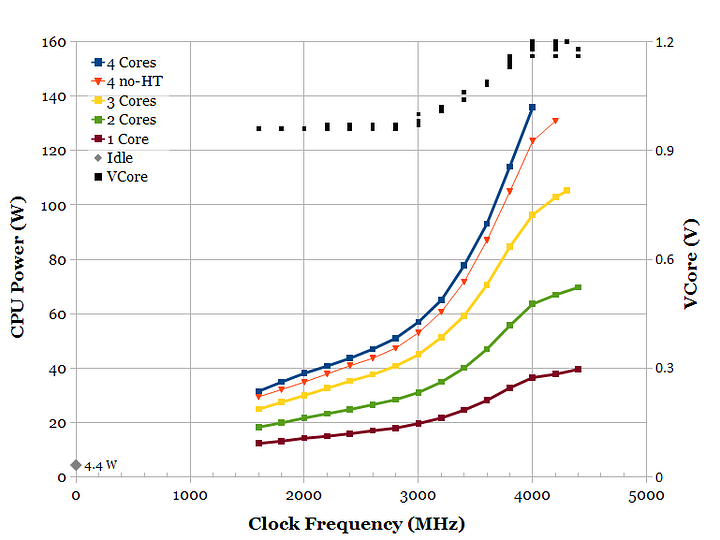I am probably going to use my old i5 2500k to run proxmox and various virtual machines on it. Since it will run 24/7 I was wondering if there is anything I can do to reduce its power consumption and heat generation, aside from undercolting?
Would for example downclocking it reduce its power consumption and heat generation? If for instance there is a tasks that takes 2ms on a 4GHz CPU, then it is going to take 4ms on the same CPU clocked at 2GHz. Therfore it runs twice as long and probably consumes roughly the same power. Furthermore, while at 4GHz it gets shortly hotter, it will be cooler longer. Thus the average temperature should be the same. Or am I getting this wrong? Does for example underclocking increase the CPU's undercolting capabilities?
this would only be correct if the task you run uses 100% of the cpu regardless of what cpu it is.
otherwise if the task only uses maybe 50% of the cpu's power then it can vary what it'll do when you underclock it.
If you want the cpu to use less power simply set the affinity to less cores or set the cpu max state lower in the power settings.
1 Like
Power consumption doesn't scale linearly with frequency, otherwise it wouldn't be any point to running laptops at slower frequency if they're just going to have to work longer.
Here you can see a typical chart of power vs frequency scaling.
Typically CPUs have a sweet spot frequency to power consumption, high core count xeon chips like e5-2699v4 with it's 22 cores run about 2.2-2.4ghz under full load to stay within the sweet spot for the best power usage to hardware cost for servers and workstations.
1 Like
Thanks for this chart. Thus it is safe to assume that downclocking will probably decrease the CPU's power consumption and, as a consequence, heat generation)
